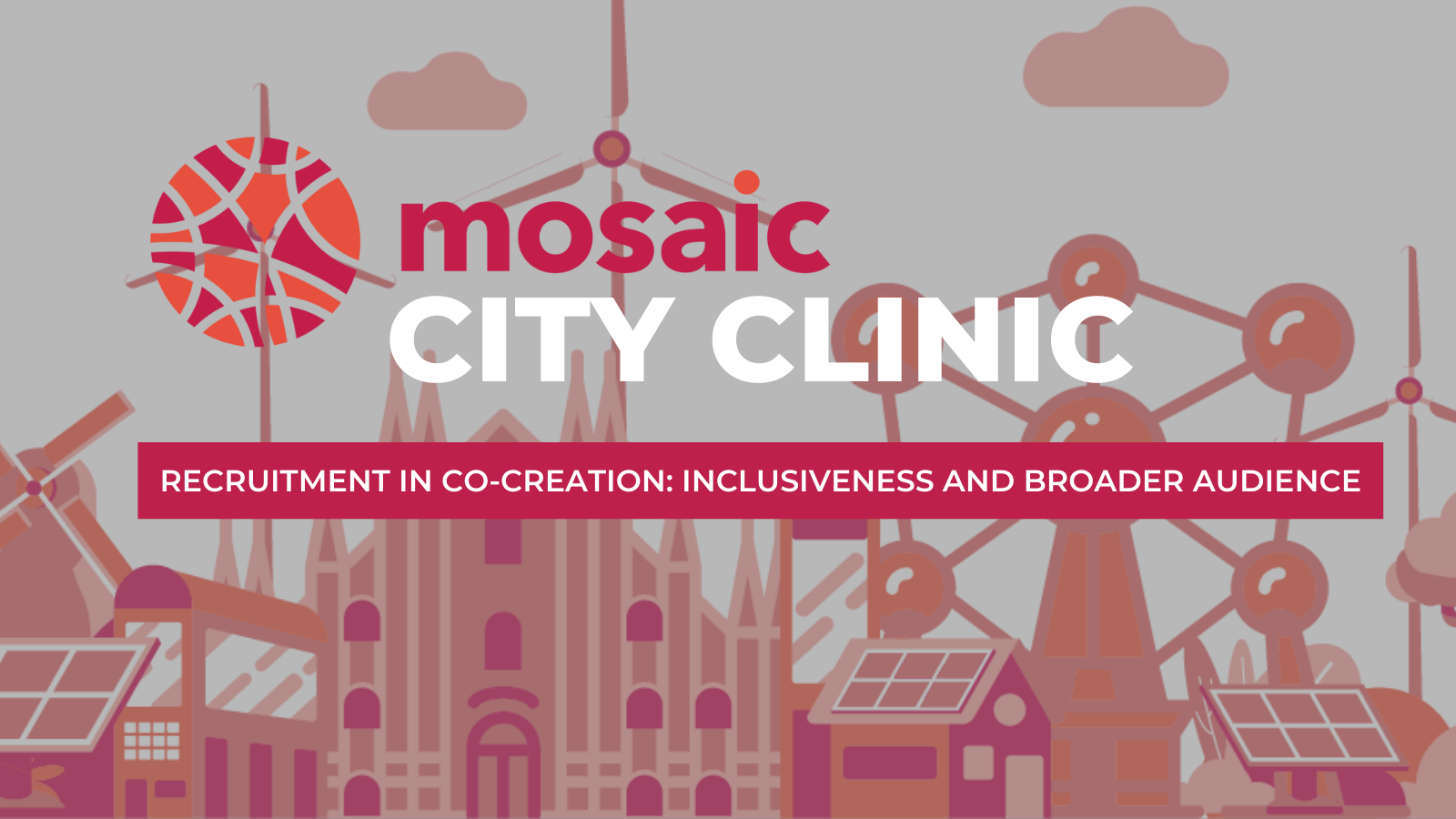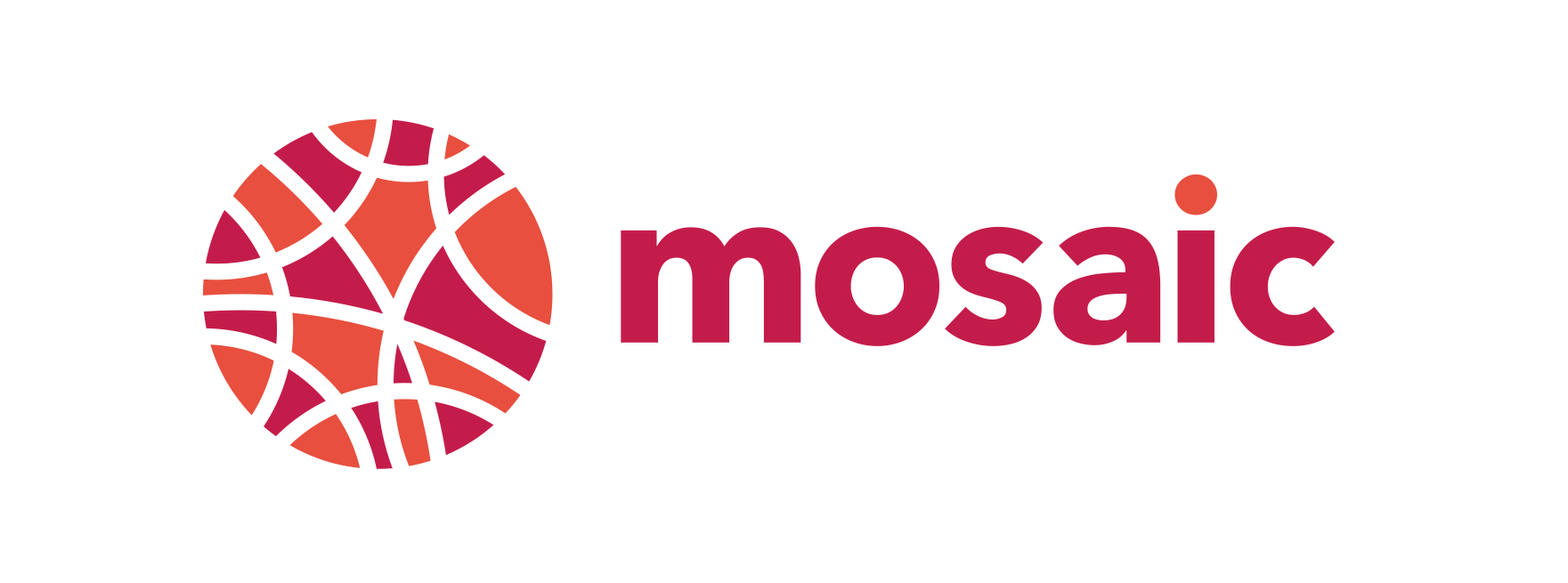Recruitment of participants plays a crucial role in the success of any innovation participatory pathway, as it sets the stage for diverse perspectives, fosters collaboration, and ensures that decisions are inclusive and representative.
The recent MOSAIC Clinic session delved into the challenges and best practices in recruiting participants and achieving real inclusiveness.
When it comes to recruiting participants for participatory processes, several challenges arise. One of the primary hurdles is ensuring that the participant pool represents the diversity of the community. Often, those who engage in such activities are the ‘usual suspects’, individuals who are already connected and have a vested interest in the issue at hand. This can lead to a lack of diversity in perspectives and experiences, undermining the effectiveness of the participatory process.

Another significant challenge is reaching out to and engaging individuals who may face barriers to participation. These barriers can be social, economic, or cultural. Overcoming these challenges is essential to ensure that the participatory process is truly inclusive and reflective of the needs and aspirations of the entire community.
During the recent MOSAIC Clinic session, the representatives from Milan and Gothenburg, MOSAIC Pilots, discussed with the MOSAIC Community experiences and best practices for achieving real inclusiveness in the recruitment process. They demonstrated that successful engagement of local communities on hot challenges for the community requires tailored strategies and genuine efforts to involve diverse voices.
One key best practice is to implement targeted outreach strategies. This involves actively seeking out and connecting with underrepresented groups and ensuring that information about the participatory process is accessible to them. Engaging with community organisations, local leaders, and grassroots initiatives can help bridge the gap between the process and potential participants. By leveraging these existing networks, recruitment efforts can tap into the diverse dynamics of the community and encourage the involvement of a wider range of perspectives.
Another key message arised from the discussion is that building trust and legitimacy are essential for encouraging participation. This involves transparent communication, clear articulation of the goals and objectives of the process, and demonstrating that participant input will be valued and acted upon. When individuals feel that their involvement will make a difference and that their voices will be heard, they are more likely to engage in the participatory process.
The session also emphasised that recruitment in participatory processes should be seen as an ongoing effort: it requires a commitment to inclusiveness, adaptability to meet community needs, and a strong foundation of trust. By embracing best practices and actively addressing the challenges of recruiting participants, we can create participatory processes that authentically represent the diversity of voices within our communities. This paves the way for innovative and inclusive solutions that drive us towards a sustainable and climate-neutral future.
